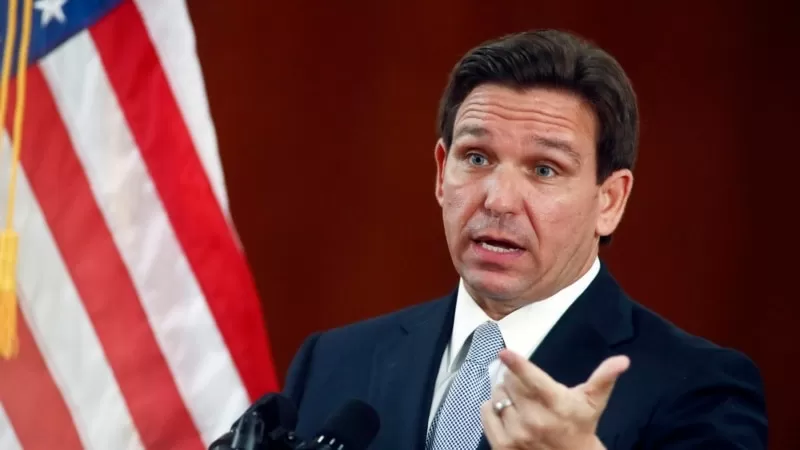TALLAHASSEE, Florida — On Monday, Florida Governor Ron DeSantis signed a bill that will impose one of the strictest social media bans for minors in the country. The bill, which was a top priority for Republican Speaker Paul Renner, will ban social media accounts for children under 14 and require parental permission for 15- and 16-year-olds. While the bill was slightly watered down from a previous proposal that DeSantis vetoed, it is still a significant step towards protecting children from the potential harms of social media.
The new law, which will take effect on January 1, aims to address the growing concern of children’s addiction to social media and its negative impact on their mental health and well-being. At the bill-signing ceremony held at a Jacksonville school, Renner emphasized the need for the government to step in and protect children who may not have the ability to recognize the addictive nature of social media and its potential harm.
The bill that DeSantis vetoed would have banned minors under 16 from popular social media platforms, regardless of parental consent. However, after working out a compromise with Renner, the governor signed a second bill that addressed his concerns. This shows a willingness to find a balance between protecting children and respecting the rights of parents to make decisions for their children.
Similar legislation has been considered in other states, but Florida’s bill stands out for its focus on the addictive features of social media rather than its content. This approach is crucial in ensuring that the law withstands legal challenges. In Arkansas, a federal judge blocked the enforcement of a similar law in August, citing concerns about its constitutionality.
Renner acknowledged that social media companies will likely challenge the law, but he remains confident that they will be defeated. He also expressed determination to continue fighting for the well-being of children, saying, “We’re going to beat them, and we’re never, ever going to stop.”
Governor DeSantis also acknowledged that the law may face legal challenges on First Amendment grounds. However, he expressed confidence that the bill is constitutional and that it will be upheld. As a lawyer himself, DeSantis understands the importance of ensuring that laws are in line with the Constitution. He also highlighted the recent ruling by an appeals court that struck down the “Stop Woke Act,” which he signed into law two years ago. The court ruled that the law violated free speech rights by banning private businesses from discussing racial inequality in employee training. DeSantis believes that the social media ban is different and will not face the same fate.
The bill received overwhelming support from both chambers, with some Democrats joining the majority of Republicans who voted in favor of it. However, opponents argued that the bill goes too far in taking away parents’ rights and that the government should not interfere with decisions parents make for their children. Democratic Representative Anna Eskamani expressed her concerns, saying, “This bill goes too far in taking away parents’ rights. Instead of banning social media access, it would be better to ensure improved parental oversight tools, improved access to data to stop bad actors, alongside major investments in Florida’s mental health systems and programs.”
While there may be differing opinions on the best approach to addressing the issue of children’s social media use, it is clear that the Florida government is taking a proactive stance in protecting its young citizens. The social media ban for minors is a significant step towards promoting a healthier and safer online environment for children. It also sends a strong message to social media companies that their addictive features will not be tolerated when it comes to children’s well-being.
In conclusion, the new social media ban for minors in Florida is a positive and necessary step towards protecting children from the potential harms of social media. It is a testament to the government’s commitment to safeguarding the well-being of its young citizens and promoting responsible social media use. While there may be legal challenges ahead, the bill’s supporters remain confident that it will withstand them and set a precedent for other states to follow.

